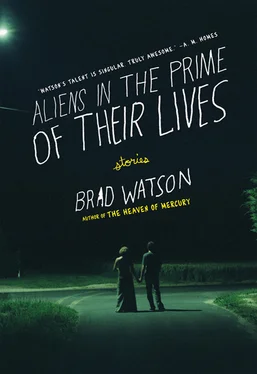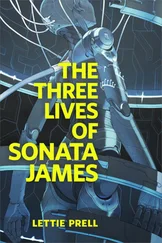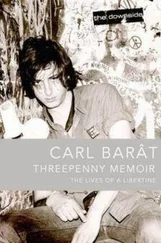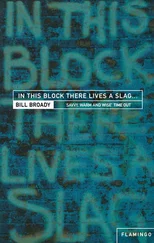The mother came back into the den and stopped short when she saw that the boys were still sitting on the sofa where they’d been sitting when she got home. She folded her arms and looked at them for a few seconds before saying, I know something is up. What have you done? What’s wrong?
Nothing’s wrong, I promise, the oldest brother said. The other two brothers kept their mouths shut, as they’d agreed to do, and after looking at them suspiciously for another long minute, the mother turned and walked slowly into the kitchen, as if thinking. She was most likely thinking that one or another of the boys had had some kind of accident. That maybe they had broken a window she hadn’t noticed yet, or destroyed the mechanisms inside an appliance, or gotten caught stealing something or destroying something somewhere else and were therefore waiting either to tell her about it or to be visited by the injured party, coming to inform her that because of what her boys had done that day she must pay them a certain sum of money, in order to repair or replace what was missing or destroyed.
And then she looked out the window and saw Dr. Hornegay walking up their driveway into the carport carrying a bunch of flowers and a bottle of something inside a paper sack, and wearing a suit and tie.
Oh, God, she said to herself, and then louder she said to the boys, What did you do to Dr. Hornegay?
When she heard nothing she looked over at the sofa. The boys were still sitting there and staring at her as if they were not only mute but deaf, or like dogs being spoken to and unsure what the tone of the person’s words meant, that clap-mouthed momentary attentive interim between daydreaming and the next distraction. Or like children in the convenience store who, having just slipped candy bars into their pockets, were looking at the clerk with expressions that were the most balanced and perfect combination of innocence and guilt.
The mother was fairly mystified. Between the looks on her boys’ faces and the appearance of Dr. Hornegay in her carport, now at her carport side door, the den door, and ringing the bell, and dressed in a suit and tie and carrying a bunch of flowers and a bottle of something inside a paper sack, she felt a strange unintelligible flutter of panic.
What have you done? she said to the boys, who did not hear this because she said it in a voice just barely above a whisper.
When she opened the door, Dr. Hornegay stepped back from it with the flowers and bottle in his hand and made a deep bow. Good evening, my dear, Dr. Hornegay said. You look lovely as ever. It’s been far too long since we’ve had the pleasure of your company.
Their mother did not open the screen door but said through it, Hello, Dr. Hornegay, what can I do for you?
For me? Dr. Hornegay said, and laughed to himself, looking off toward the street and heaving a sigh, as if he were suddenly a little pleasantly saddened by something, maybe the thought of how he’d never gotten rich like the doctors their mother worked for down at the pediatric clinic, or how his wife had gotten so sad that she gained a hundred and fifty pounds and moved into their basement and now couldn’t get out, or how he himself couldn’t go anywhere now since the police had taken away his driver’s license after he’d run into a telephone pole on the way home from the Traveler’s Club out on the highway. Or maybe it was something way back, whatever it was he had done that had banished him to the charity hospital in the first place.
Madame, you need do nothing for me, Dr. Hornegay finally said after his long and melancholy pause. The question is, what can I do for you?
For me? their mother said. I’m sorry, Dr. Hornegay, but there’s nothing wrong with me.
No? Dr. Hornegay said, looking surprised and most perplexed, but in a playful way. Well, your fine boys there, and he gestured with the hand that held the bottle in the paper sack toward the brothers still sitting on the sofa in the den behind her, those precocious, compassionate young men of yours, said that you were afflicted with a grievous sadness, and I, madame, am the doctor, here to cheer you up.
Their mother then turned a look on the brothers, still sitting very still on the sofa, that they had never seen before. The look was so thrillingly unfamiliar and so deliciously terrifying that it was all they could do not to yelp and cower or leap off of the sofa and run out into the yard. But they were in effect paralyzed by the look and remained very still, and only their expressions changed from attentive curiosity and expectation to attentive and paralyzed, panicked delight.
May I be so bold, Dr. Hornegay said then, and he opened the screen door with the little finger of the hand holding the bottle in the paper sack and held the flowers toward their mother with the other hand. Their mother took the flowers and said thank you in a voice that was neither here nor there in terms of being grateful and pleased or puzzled and annoyed, and then she said, What’s in the sack?
Only some of the finest bourbon made in the great southern state of Kain-tuck, Dr. Hornegay said, and with a flourish he removed from the sack by its neck a bottle of Old Crow whiskey.
Oh, my, it’s been a long time since I’ve had a drink of anything like that, their mother said.
The boys knew this was true, that the only person drinking anything like that around their house for the last few months before their father left for his job as a long-haul traveling salesman was their father himself and sometimes, during the daytime when she was supposed to be washing or ironing or vacuuming the house and watching them, the good-looking young maid who would soon enough cause so much trouble for herself and everyone else. They knew that the only thing to drink around the house nowadays was their mother’s jug of kosher Manischewitz, which she rarely sampled and which she kept not because she was Jewish (she was raised a Methodist) but because it was the only wine around their town that wasn’t wino wine like Boone’s Farm or that other one that you often saw actual winos clutching as they staggered down the street or lay in the gutter behind Woolworths downtown until the police found them and hauled them down to the pokey to sleep it off and then work it off sweeping the very gutters they had been passed out in the day before.
Too long, madame, too long, Dr. Hornegay said, gently slipping past their mother into the den and giving the boys a nod and a wink where they sat on the sofa. He made his way to the little dining table just outside the kitchen where they ate almost all of their meals. The bigger, nicer table where they ate their special meals like Thanksgiving and Christmas was in the formal dining room, which also had a fancy sofa and two fancy stuffed chairs and a hi-fi, but which was almost never used or even entered, in order to keep it clean and neat for the next special occasion. All the houses on their street, a cul-de-sac that had until then been a little dirt road down to a small lake in the woods on the northern edge of town, had been built by the same builder at around the same time, and they all had the same setup, with the den being the room that people hung around in, and the living room in which almost no one ever actually lived. It was one of the small, curious things about the world into which the boys had been born.
I’ll have a drink with you, their mother was saying to Dr. Hornegay, who had helped himself to a couple of small glasses from the cupboard and some ice from the freezer atop the refrigerator and set the glasses of ice and the bottle of Old Crow down on the little dining table. She said, I’ll have a drink, but then I have to cook supper.
Oh, pish posh, Dr. Hornegay said with a courtly gesture of one hand. I’d be willing to wager that these boys would love to have a simple repast, something we could order over the telephone — my treat, he said. Turning to the boys sitting on the sofa, he said, Boys, tell me if I’m wrong, but I’d be willing to wager that you wouldn’t turn down a sack of Mrs. Benson’s hot tamales, am I correct?
Читать дальше












